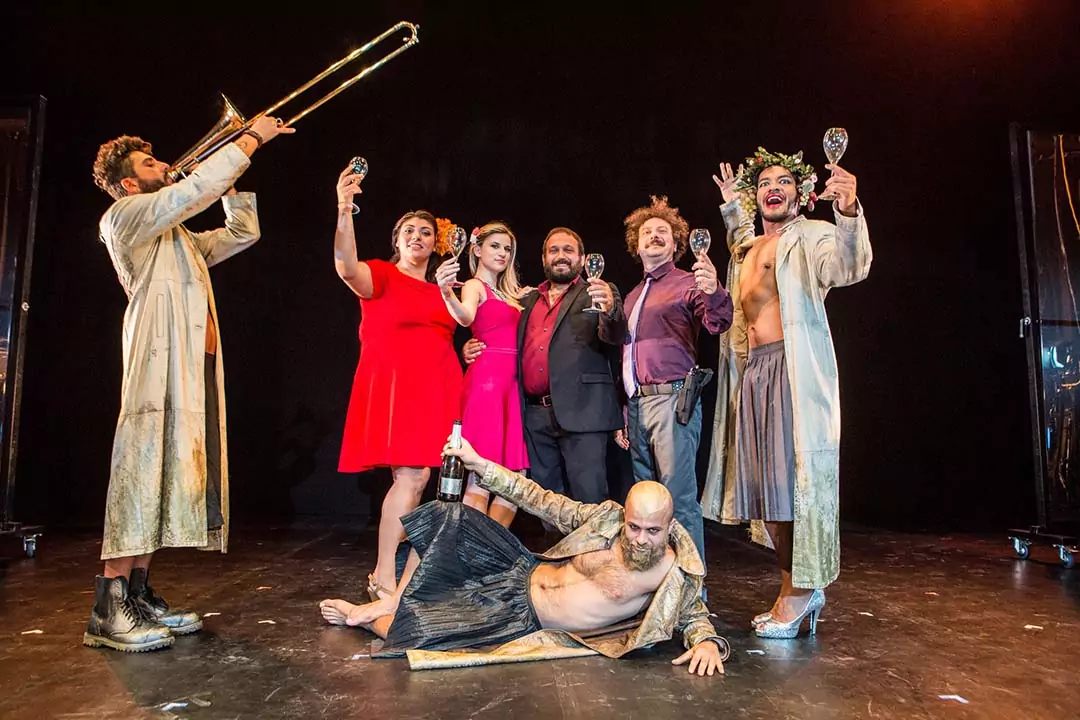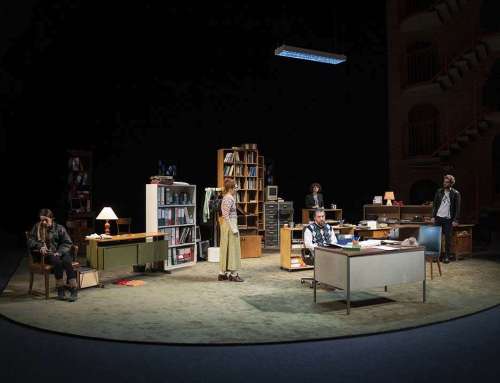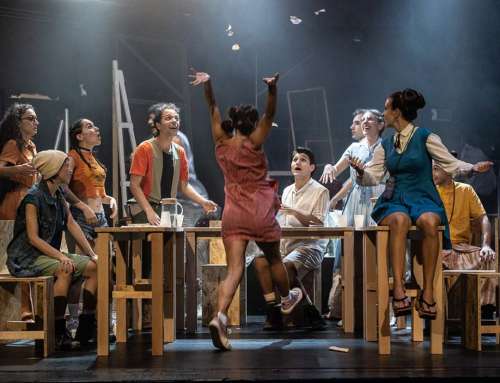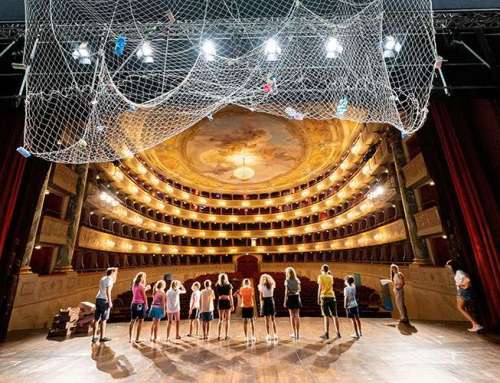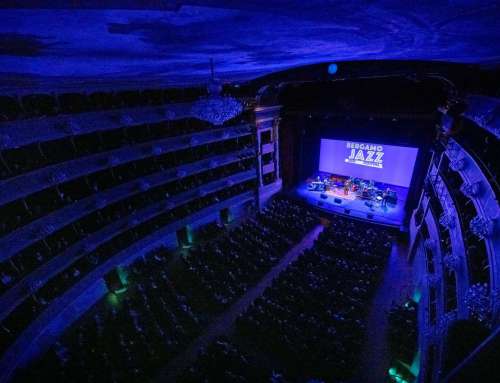After Pippo Delbono’s touching Amore hosted at the Donizetti, the Altri Percorsi series by Fondazione Teatro Donizetti returns to its usual venue, Teatro Sociale in Città Alta, where on Thursday, March 27 (8:30 PM) and Friday, March 28 (10:30 AM), Anfitrione is scheduled, a reinterpretation of Plautus’ text by Teatro Kismet from Bari, with dramaturgy and direction by Teresa Ludovico. Originally programmed in 2020 and then cancelled due to the pandemic, Anfitrione revolves around the theme of duality, fundamental in Plautus’ text and placed by director Teresa Ludovico in a criminal environment where six actors and a musician, in continuous motion, sketch dual worlds: divine and human, above and below, light and shadow. In the show, truth and fiction alternate and blend in a game of mirrors through the actors’ bodies and voices.
“Who am I if I am not myself? When I look at my double, I see my appearance, exactly the same, there’s nothing more similar to me! Am I still who I’ve always been? Where did I die? Where did I lose my person? Could I have left my self behind? Did I forget myself? Who is more unfortunate than me? No one recognizes me anymore and everyone mocks me at will. I no longer know who I am! These are some of the questions that torment both the protagonists of Anfitrione, written by Plautus more than 2000 years ago, and many of us today,” says director Teresa Ludovico, “The double, the construction of a fictitious identity, the theft of the self, the loss of being guaranteed by a social role, are the themes that Plautus delivers to us in a new form, which he defines as tragicomedy, because the events involve gods, masters, and slaves. In it, the supreme Jupiter, after transforming into various animal, plant, and natural forms, decides, for the first time, to disguise himself as a man. He takes on the appearance of Anfitrione, away from home, to be able to mate with his wife, the beautiful Alcmena, and generate the demigod Hercules with her. Jupiter-Anfitrione, during the night of love, as long as three nights, tells Alcmena, as if he had personally experienced them, episodes from Anfitrione’s journey. During the story, the god experienced, for the first time, a hilarity that he then took care to leave as a gift to men. After Plautus, many have rewritten Anfitrione, and each has done so trying to listen to the stimuli and concerns of their own time. I tried to do it too.”
Teresa Ludovico is a director, author, and actress. After graduating, she undertook a long artistic journey under the guidance of various masters, in Italy and abroad. Since 1993, she has been part of Teatro Kismet OperA in Bari and has been a resident director since 1998. Among others, she writes and directs the shows Ecuba e i suoi figli, Bella e Bestia (ETI Stregagatto Award 2002), La regina delle nevi, Il malato immaginario presented at festivals and theaters in Europe, Asia, and Australia. She approached musical theater by writing and performing various works including the theatrical concert In search of Simurgh, created in collaboration with Radiodervish. She directs numerous contemporary theater works including
Piccola Antigone e Cara Medea and Namur, by Antonio Tarantino, in which she also performs. She curates the rewriting and direction of I Was A Rat! by Philip Pullman, co-produced by Birmingham Repertory Theatre Company, Nottingham Playhouse Theatre Company, The New Wolsey Theatre, Ipswich, and the direction of The BFG by Roald Dahl, produced by Birmingham Repertory Theatre. Furthermore, from 2002 to 2008, she collaborates with Setagaya Public Theatre in Tokyo and curates the direction and dramaturgy of Yuki no Joou and Ningyohime. In 2008, for Za Koenji Public Theatre in Tokyo, she directs and writes Tabi to Aitsu to Ohimesama which in 2011 wins the Jido Fukushi Bunka Sho award as “Best work for new generations” and, in 2016, she writes and directs Pinocchio. From 2011 to 2016, she curates the Artistic Direction of Teatro Kismet OperA, now Teatri di Bari. She is currently the artistic director of the Maggio all’Infanzia festival. From the Puglia Region, Department of Equal Opportunities, she receives the “Premio Talento Donna – Puglia 2013” award.

